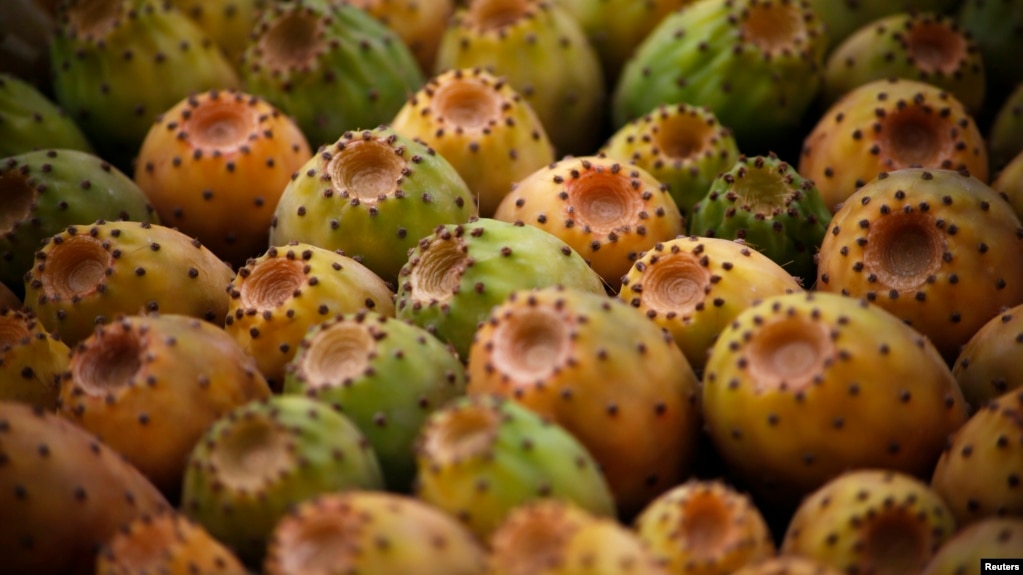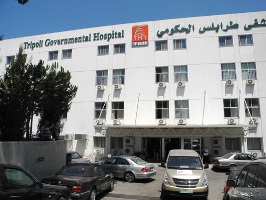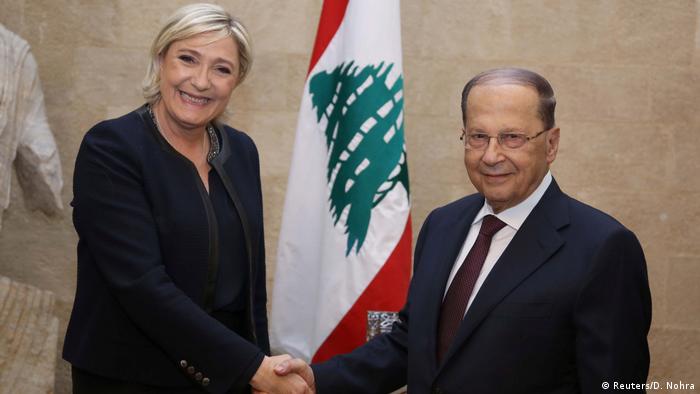By Gulf News – Joseph A. Kechichian, Senior Writer Beirut: Notoriously undisciplined drivers in Lebanon loathe the many speed bumps on public roads, which various municipalities erected to cut down on accidents, many of which tend to be fatal. A recent memo from the Ministry of Public Works and Transportation ordered their removal, allegedly because […]

By Robert Cusack
Israeli aircraft reportedly bombed a number of Syrian airbases near Damascus for the second time this year on Wednesday night. The Israeli military has not officially commented on the reported airstrikes. The
Lebanese army has said Tel Aviv’s jets used Lebanese airspace at around
3:00am [0100GMT] to launch the strikes, reported Al-Jadeed Lebanon. One of the targets was a Hizballah arms convoy travelling with the Syrian army’s 3rd division, reported the Jerusalem Post.
Lebanese
media reported that the strike was launched from Lebanese airspace in
order to bypass the Russian-made air defence systems in southern Syria. Hizballah’s leader, Hassan Nasrallah, last week reiterated his organisation’s opposition to Israel. “Hizballah will have no red lines in the next war with Israel,” he said. “Israel should think a million times before it goes to war with Lebanon.”
Lebanon’s President Aoun spoke in support of Hizballah’s arms
stockpile in the country’s south, saying it was “essential” for the
country’s defence. “Hizballah weapons are not contradictory to the state, but are an essential part in defending the country,” he said. Syria
issued a warning when Israel last struck an arms convoy on January 13
near Damascus airport, a short distance from President Assad’s palatial
residence.

BEIRUT
— France’s Presidential candidate Marine Le Pen refused to
don a headscarf for a meeting with Lebanon’s top Sunni Muslim cleric on
Tuesday and walked away from the scheduled appointment after a brief
squabble at the entrance. Le Pen, who is on a three-day visit to
Lebanon this week and has met senior officials, was to meet with the
country’s grand mufti, Sheikh Abdel-Latif Derian. Shortly after
she arrived at his office, one of his aides handed her a white headscarf
to put on. Following a discussion with his aides that lasted few
minutes, she refused and returned to her car.
On Monday, she met with President Michel Aoun and Prime Minister Saad
Hariri. She said Syrian President Bashar Assad was “the most reassuring
solution for France,” adding that the best way to protect minority
Christians is to “eradicate” the Islamic State group preying on them —
not turn them into refugees. Some Lebanese officials including,
including Hariri, a Sunni, have taken umbrage at what is widely seen as
her stigmatization of Muslims, who her followers claim are changing the
Christian face of France. There was also apparent displeasure at her
comments on Assad.
Lebanese Forces leader, Samir Geagea said after meeting with Le Pen on Tuesday that “terrorism
has no religion.” He described Assad as “the biggest terrorist in Syria
and the region.” PSP Leader Walid Jumblatt, in
Lebanon, tweeted on Tuesday that Le Pen’s statements in Lebanon “were an
insult toward the Lebanese people and Syrian people.”
After
walking away from the meeting with the grand mufti, Le Pen said she had
previously told the cleric’s office that she would not wear a headscarf. “They didn’t cancel the meeting, so I thought they would accept the
fact that I wouldn’t wear one,” she said. “They tried to impose it upon
me.” The office of Lebanon’s mufti issued a statement saying that Le Pen
was told in advance through one of her aides that she would have to put
on a headscarf during the meeting with the mufti. “This is the
protocol” at the mufti’s office, the statement said. It said the mufti’s
aides tried to give her the headscarf and that Le Pen refused to take it

Prickly pears are displayed for sale at a stall in Beirut. A dozen prickly pears are sold for approximately $4 in the
Lebanese market.
by Jessica Berman — From VOA Learning English, this is the Health & Lifestyle report.
In the future, chemicals from plants found in and around the
Mediterranean may be used to help treat people with brain diseases such
as Alzheimer’s and Parkinson’s. These two diseases are age-related and neurodegenerative. Neurodegenerative relates to the degeneration of nervous tissue, especially the brain. People suffering from Alzheimer’s and Parkinson’s have deposits of sticky plaque in their brains. Over time, this plaque reduces brain function. Eventually, it causes death.
Scientists say plaque can be reduced
But scientists say the plaque deposits can be reduced with chemicals
from plants, including prickly pear and brown seaweed. Scientists say
the chemicals — or, extracts — appear to replace the harmful, sticky plaque with deposits that are less harmful. These scientists are researchers at the University of Malta and the
National Center of Scientific Research at the University of Bordeaux. They tested the chemical extracts of the plants on a substance called Brewer’s yeast.
This yeast had plaque deposits similar to those seen in Alzheimer’s
disease. Scientists say the health of the yeast improved greatly after exposure to the chemical extracts. Researchers then tested the extracts in fruit flies that were genetically changed to develop symptoms of Alzheimer’s.

by Michael Karam
The Lebanese have a wonderful ability to adapt. I guess it
comes from having to fend for themselves under various occupiers down
the millennia. But even today, 74 years after winning independence from
France, the average Lebanese knows that he cannot rely on the state for
health care, education, electricity and water. It is a situation that
has allowed sectarian politics to flourish to the extent that allegiance
to a political party is often greater than that to the government, but
it has also prompted the private sector to take matters into its own
hands. Lebanon is, after all, arguably the purest expression of a
mercantile culture.
I
was thinking about this last week when the British media was once again
in a fit of angst over the National Health Service (NHS). Now I happen
to think, having lived full-time in the UK for over two decades, that
the NHS, along with that of the Sécurité Sociale in France, is not only
one of the best healthcare systems in the world, but also one of the
greatest expressions of the welfare state anywhere on the planet. Even if it appears to be in terminal crisis: staff shortages,
overcrowding (often attributed to so-called health tourists and EU
immigration) and underfunding (the austerity measures implemented by the
Conservative government have been blamed). Accident and Emergency
departments across the country are the regular focus of “NHS in turmoil”
stories, with tales of patients lying on stretchers in corridors for
hours waiting for treatment. It’s a sorry situation all round. Part of the problem lies with the fact that many people will pop into
A&E with non-life- threatening conditions such as a sprained ankle
or a bad cold, either because their GP is not available or they are
simply lazy and selfish, or both, and there have been calls to give
pharmacists greater powers to treat conditions that do not really
require a hospital visit. This would in theory free up hospitals to deal
with more deserving cases.
The
Lebanese have been doing this for decades. The local pharmacy is not
just a place to buy Panadol and lozenges. Pharmacists in Lebanon are
almost as highly regarded as physicians and play an integral role in
coordinating with the ministry of health to ensure what healthcare
system there is can function.



Le Pen, who is trying to establish international credentials as part of her current bid for the Elysée Palace, was also meeting business and religious leaders during the two-day visit to the Middle Eastern nation. “We discussed the long and fruitful friendship between our two countries,” the National Front (FN) leader said after meeting Aoun at the presidential palace in the hilltop suburb of Baabda. She said they also discussed the refugee crisis in Lebanon, where more than one million war-weary Syrians have fled in recent years. “We raised… the concerns we share over the very serious
refugee crisis,” she said. “These difficulties are being overcome by the
courage and generosity of Lebanon but this cannot go on forever.” Opinion polls show that Le Pen is on pace to win the first round of France’s presidential election on April 23, but that she will be beaten in the run-off ballot on May 7.
Word of caution
The leader of the anti-immigration FN party also met
Lebanese Prime Minister Saad Hariri, a Sunni Muslim, who cautioned
against associating his religion with jihadists who have repeatedly
targeted France. “The worst mistake would be the amalgam between Islam and
Muslims on one hand and terrorism on the other hand,” Hariri said, in a
statement issued by his office. “The Lebanese and Arabs, like the majority of the world,
consider France to be the homeland of human rights and of the republican
state that makes no ethnic, religious or class distinction between its
citizens,” he said. On Tuesday, Le Pen is to meet Lebanon’s grand mufti, the
leader of its Sunni community, the Maronite Christian patriarch and
rightist Christian party leader Samir Geagea.

By Hashem Osseiran – Middle-East Online – BEIRUT
A city with staggeringly slow internet
service, a severe economic slowdown and perpetual political
stalemates does not seem to be a likely place for a burgeoning tech
sector. Beirut, however, is defying expectations by emerging as a tech
gateway for the Middle East. In the past three years,
Beirut has developed many of the elements necessary to become a regional
tech powerhouse: Greater access to funding, government support and a
growing number of accelerators and incubators.
A
database compiled by Arabnet, a start-up incubator and media company,
indicates that Lebanon boasts nearly 200 start-ups. A report by the
group put Lebanon in second place regionally, after the United Arab
Emirates, for the number and value of investments in its tech sector. Beirut
has also become a regional hub for tech conferences and seminars. It
is one of four cities to host the annual Arabnet conference, the
region’s leading forum on digital business. Lebanon’s BDL (Banque du
Liban) Accelerate conference last year was one of the ten biggest tech
conferences in the world.
Only six years ago, limited
funding opportunities and little government support made development
of Lebanon’s tech industry difficult for emerging start-ups, said Omar
Omran, a Paris-based tech entrepreneur who in 2011 founded Lebanon’s
first mobile app development company. “Back then, it
was not easy to find investors or receive support from Lebanese banks.
We were funding everything,” Omran said during a Skype interview.

French far-right presidential candidate Marine Le
Pen arrived in Lebanon on Sunday evening for a two-day visit during
which she was to have her first official meeting with a foreign head of
state, President Michel Aoun. She was also set to meet Prime Minister
Saad Hariri. Le Pen’s meeting with Aoun will
be the first time she has been officially received by a foreign leader
since taking over the party leadership from her father, Jean-Marie, in
2011.
Her National Front (FN) party hopes it will show she is taken
seriously abroad, following a number of disappointments in that field. The Lebanese leaders have already met centrist candidate Emmanuel Macron and would have met mainstream right presidential candidate François Fillon had he not cancelled his visit because of the Penelopegate scandal.
by alaraby.co.uk
The prestigious best fiction film award at this year’s Berlin film festival has gone to joint the Lebanese-French-Belgian film Insyriated, it was announced on Saturday. Insyriated is
a tautly-constructed drama about a group of people trying to live a
normal life in a war zone. It is the second film staring
Palestinian-Israeli Hiam Abbass to win the Panorama Audience Award with
the actress also played the lead in Eran Riklis’s Lemon Tree in 2008. Winning director Philipp Van Leeuw triumphs with only his
second feature film. He previously tackled conflict themes, and the
poignant topic of Rwandan genocide, in 2008’s The Day God Walked Away.
BEIRUT (Reuters) – Lebanese President Michel
Aoun said on Saturday that any Israeli attempt to violate Lebanon’s
sovereignty would be met with the “appropriate response”, in a statement
released by his office. “Any attempt to hurt Lebanese sovereignty or
expose the Lebanese to danger will find the appropriate response,” the
statement said. It said Aoun was reacting to recent remarks in a
letter at the United Nations by Israel’s U.N. ambassador, which
amounted to a “masked attempt to threaten security and stability” in
southern Lebanon, but did not say what the remarks were.
Israeli Intelligence Minister Yisrael Katz said on Thursday that all of Lebanon would be a target if Hezbollah fired on Israel. Aoun’s comments also followed warnings this week
by the leader of the armed Lebanese Shi’ite group Hezbollah, a
political ally of the president, against any Israeli aggression.



